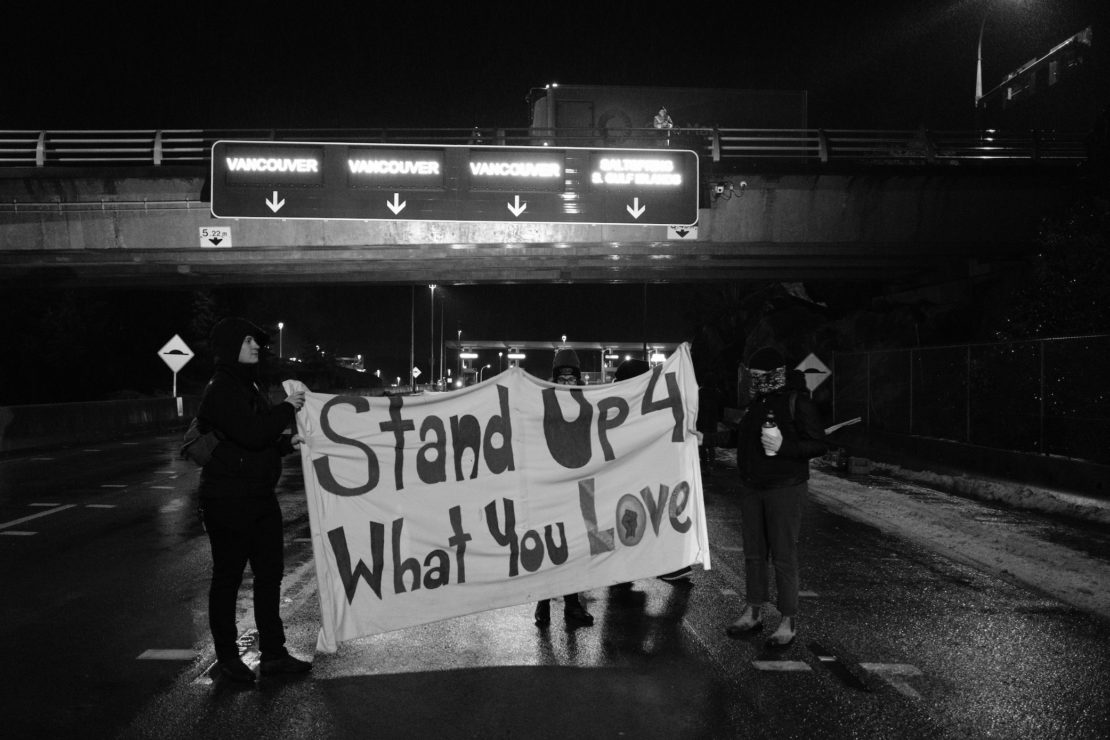
To my international pals: have you ever wondered about your relationship to Indigenous land struggles?
If this is about shutting down our state’s legal but unjust monstrosities, we have to recognize that many international students ourselves are Indigenous in the sense of having had our ancestors forcibly displaced from the lands they traditionally inhabit. Of course, one cannot help but notice how the word “Indigenous” belongs to Canada and the Crown, at least in terms of the way internationals here can access this category. Some of my Filipino friends have ancestors who experienced land dispossession under American colonial authorities. But when they set foot in Canada, they are told, “You’re not Indigenous, you’re an immigrant.” Or, “You’re international.” If we shut down Canada in our minds first, the word “Indigenous” can take on a whole different (and more encompassing) meaning. If this movement is about ending the state, there are countless examples of such struggles worldwide that seem unrelated because they use different words for their activism. Being unable to hear how these imbricated movements speak to one another feels like one of the largest hijackers of International-International and furthermore, Indigenous-International solidarity.
Compared to getting white settlers to embark on journeys of self-reflection on their complicity in Indigenous-settler relations, the battle is twice as hard when the perpetrators as internationals themselves do not recognize themselves as de facto agents of the Crown.
Amidst the current COVID-19 outbreak, intra-Chinese discrimination reveals a metamorphosis of racism that the classic doctrine of liberal democracy will find laughable. More broadly, internationals struggle to build the right type of solidarity especially if our representatives frame themselves as postcolonial nationalists — China versus India as emerging superpowers, for example. Have we forgotten that during the Opium Wars, British traders used one as a dumping ground and the other as a smuggling port? None of those are actually places or peoples, but ways of thinking that have been tremendously effective at sowing discord within communities. Indirect rule indeed.
When it comes to internal disagreements within marginalized groups, we might think of Indigenous land defenders who negotiate with their counterparts who support the pipelines. One does not automatically occupy a decolonial perspective with sufficient humility to spare a thought for fellow comrades simply by virtue of owning a marginalized identity position in the larger scheme. Representatives of disadvantaged groups leverage their within-group privilege that extends them the honour of being the public ‘face’ to outside observers. When the voices of middlemen support the love for money and not the people’s customs, it amounts to sabotaging the whole “solidarity” business for the rest of us. When my ancestors in China had no choice but to move, they arrived at the trading port which is now Singapore as “coolies” (construction workers) who — mind you, under British imperial trade — were mobilized to rob Indigenous Malays of their land in the process of building up one of the most expensive cities in the world.
So again, why does Indigenous-international solidarity feel so out of reach? By no means unique, my home situation is the aftermath of industrial capitalist imperialism, negotiated political independence seen as decolonization, passing into neo-colonialism. Indigenous land defenders are not fighting for sovereignty, they are defending the land — not protesting, but protecting. Sadly, immigrant rights language sounds more like an ally of economic multiculturalism. The hard truth is that tribal epistemologies were erased, not from our hearts and minds but from our instruments of enterprise, so that we talk in the language of private ownership and asset multiplication. This dilemma is also what drives the lifelong mission of some, but unfortunately not all, postcolonial capitalists — writing equity and human lives into the inhumane language of profit maximization — who believe that slowly but surely, we can eke out a more just version of this process.
Egoistic self-centeredness can be internalized by those who have weathered the brute force of colonization, who end up walking the inconsiderate path by trodding on treasured historic relationships. Internationals whose ancestors experienced the ingenuity of systems of unfree labour, but who now find themselves holding the reins of the impersonal means of wealth multiplication, have to be preoccupied with finding space for Indigenous customary equity. I hope that the people who devote painstaking efforts to the ironic mission of healing our own from historical amnesia continue to soldier on. We see one another, we love one another.







